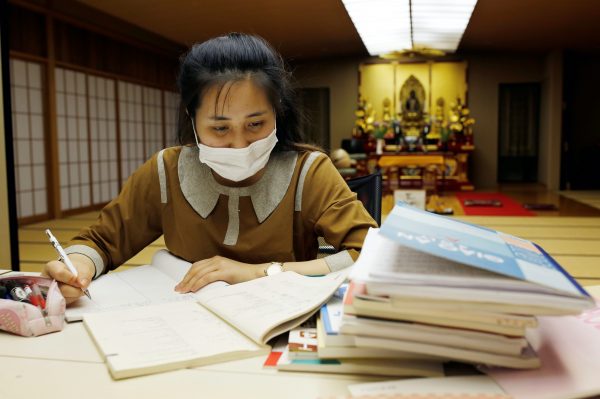Besides COVID-19 infections, a decrease in income and layoffs, the impact on foreign workers comes in various forms. For some, visa renewals are a challenge and can lead to repatriation. Others have been involuntarily detained in Japan due to reduced flights to their homeland and financial hardship.
It is necessary to develop a nuanced understanding of these impacts because the visible influences are almost certainly just the tip of the iceberg. This should include greater government efforts to pinpoint the impacts and vulnerabilities facing foreign workers to identify possible remedies.
There are several risk factors facing foreign workers in Japan amid the pandemic.
First, foreign workers tend to be concentrated in Japan’s big cities — 26.2 per cent work in Tokyo and 8.1 per cent in Aichi prefecture, home to Japan’s fourth largest city Nagoya. These cities have experienced stronger restrictions on economic activities due to the spread of COVID-19.
Second, many foreigners work in hard-hit industries, such as manufacturing, hospitality and retail and wholesale. The outbreak has bankrupted over 1000 Japanese companies, severely affecting bars and restaurants, the construction industry and hotels.
Third, a number of foreign workers are employed in small- and medium-sized businesses with generally weaker financial bases. Over 60 per cent of the 267,243 offices hiring foreign workers had less than 30 employees in 2020.
In addition to the conditions putting many foreign workers at risk, the categorisation of these workers affects what assistance is available from the Ministry of Health, Labour and Welfare and the Ministry of Justice.
Japanese law classifies foreign workers into four categories: those in so-called ‘professional or technical fields’, permanent residents, those engaged in designated activities and those with permission for extra-status activities, like exchange students engaged in part-time jobs.
All foreigners listed on the Basic Resident Register were eligible for a 100,000 yen (US$915) cash handout distributed to all residents of Japan last year. By February 2021, freelancers including foreigners could apply to the Subsidy Program for Sustaining Businesses if their monthly income dropped more than 50 per cent, compared to the same month of the previous year.
In late May 2021, no-interest Temporary Loan Emergency Funds of up to 200,000 yen (US$1825) for three months — with a repayment deadline of two years — became available for households struggling with financial hardship, which also applies to foreigners.
But Japanese public assistance covers few foreign workers with long-term or permanent residence status. The Emergency Student Support Handout for Continuing Studies given to all Japanese students was confined to ‘students with excellent grades’ in the case of foreign students. Critics say the safety nets for foreigners are fragile and below international human rights law benchmarks.
Among foreign workers, Technical Intern Training Program trainees are especially vulnerable. The scheme with over 0.4 million trainees in 2020 has long been notorious for the mistreatment of trainees in the workplace, even before the outbreak of COVID-19. In 2019, a MHLW report found that 71.9 per cent of workplaces violated the country’s labour standards regarding working hours, workplace safety and overtime pay.
Amid the pandemic, many trainees are facing layoffs because companies are prioritising the protection of their permanent workers. The government has allowed workers to switch jobs to deal with the pandemic, but finding a new job is not easy. Some foreign workers are assigned accommodation in crowded dormitories with a higher risk of being infected with COVID-19 and many have no means of returning to their own countries. Some prospective trainees have been left on standby in their home countries due to immigration restrictions.
Factors including Japanese language fluency, working status, age, gender and earnings are also shaping the effects of COVID-19 on foreign workers in Japan. Developing a nuanced understanding of the pandemic’s impact by considering the diversity of foreign workers’ experiences is imperative to formulate effective measures and protect their wellbeing.
Yusaku Yoshikawa is an aid consultant at JIN Corporation.

